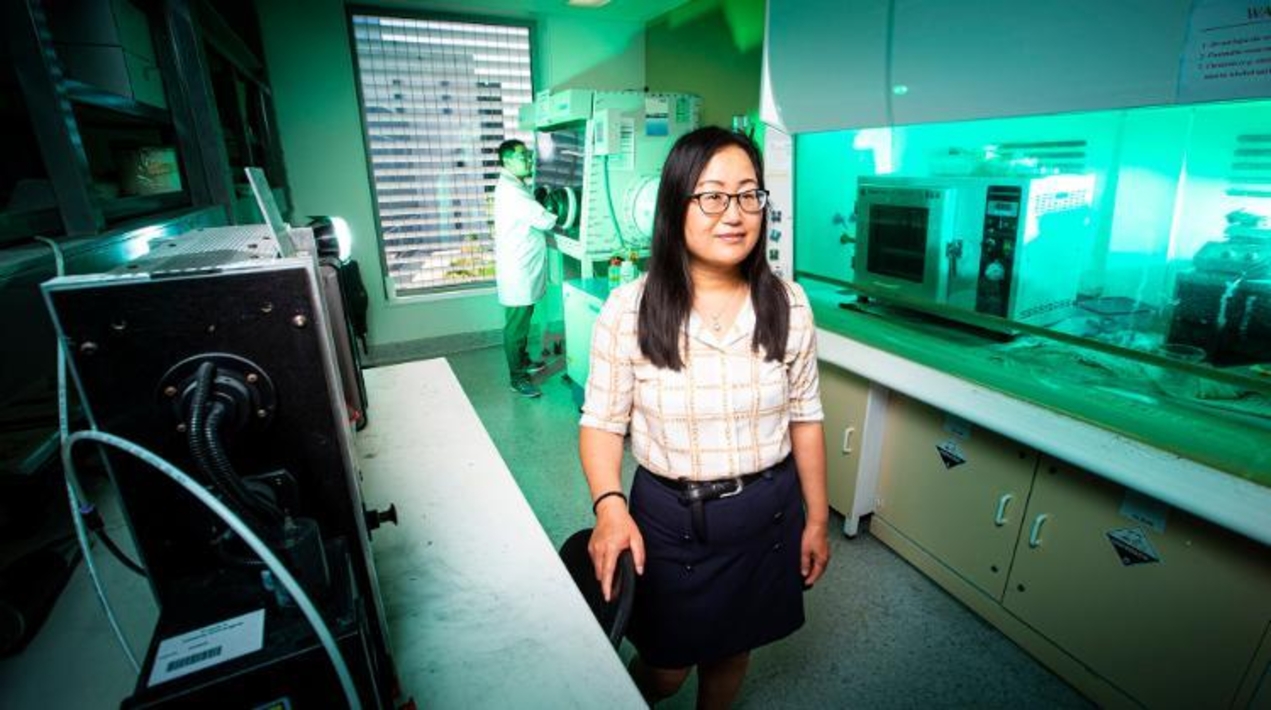
University of Wollongong (UOW) researchers have been awarded more than $5 million in funding in the latest round of Australian Research Council (ARC) Discovery Projects funding grants announced by the Minister for Education. These research projects are part of the Government’s plan to invest in ideas and innovation to help power Australia’s economic recovery from COVID-19.
Twelve UOW-led projects received funding under the ARC Discovery Projects scheme, which aims to expand the knowledge base and research capacity in Australia and support research that will provide economic, commercial, environmental, social and/or cultural benefits for Australia. UOW researchers will contribute to a further 12 Discovery Projects as research collaborators.
Investigating professional learning lives in the digital evolution of work
A team led by Associate Professor Shirley Agostinho from the School of Education, and including Dr Kellie Buckley-Walker and Professor Sue Bennett, gained $481,720 to investigate learning practices in professions affected by digitalisation. The project will provide significant benefits for a national policy on lifelong learning to address Australia’s agile skills development needs.
Roadblocks in DNA replication
Distinguished Professor Antoine van Oijen and Distinguished Professor Nicholas Dixon, from Molecular Horizons, received $600,364 for a project to develop technology to visualise and understand the molecular processes responsible for the faithful copying of cellular DNA. Project benefits include enhanced collaboration and scientific capacity in Australia.
Structures to solve conflicts of DNA replication and RNA transcription
A team led by Distinguished Professor Nicholas Dixon and including Dr Gokhan Tolun, Dr Harshad Ghodke and Associate Professor Aaron Oakley, secured $692,195 for a project to understand how new DNA is made so quickly and without mistakes in cells that are about to divide. The project could potentially lead to the development of new antibiotics.
Out of Africa: human prehistory in southwestern China
Dr Bo Li from the Centre for Archaeological Science gained $269,457 for his project to establish the timing and processes of human settlement in East Asia during the Middle and Late Pleistocene. His team will study key archaeological sites in southwest China and provide new insights into the human prehistory of East Asia over the last 300,000 years, addressing debates about the timing, rate and route of dispersal of modern humans out of Africa, across south Asia and into Australia.
Mangrove sustainability on the Australian coast
Associate Professor Kerrylee Rogers from the School of Earth, Atmospheric and Life Sciences and a team including Professor Colin Woodroffe and Associate Professor Sarah Hamylton received $450,000 to model the response of mangroves and adjoining communities to sea-level rise. Mangrove response models are urgently needed to plan for Australia’s global sea-level rise adaptation and will benefit sustainable coastal management and national carbon accounting efforts.
Playing it safe: psychological safety and mental health for community sport
Dr Stewart Vella from the School of Psychology, leading a team including Senior Professor Anthony Okely from Early Start, secured $357,409 for a project to deliver knowledge to underpin effective psychological safety and mental health guidelines for community sports. When implemented, this knowledge will help sports clubs to provide a psychologically safe environment, and promote the mental health and wellbeing of all Australians involved in organised sports.
Geopolymer concrete for thin-walled structures in marine environments
Associate Professor Muhammad Hadi from the Advanced Structural Engineering and Construction Materials Group will lead a team including Associate Professor Md Sheikh in a project to develop ultra-high-performance geopolymer concrete thin-walled structures for critical infrastructure in the marine environment. The project, awarded $325,000, aims to increase the durability of coastal infrastructures and significantly reduce the loss of their capacities due to corrosion-induced damage.
Hot topic: quantum design of phononic heat filters
A team led by Dr David Cortie, from the Australian Institute for Innovative Materials, and including Dr Zengji Yue, Professor Zhenxiang Cheng, Professor Roger Lewis and Professor Chao Zhang, gained $315,000 for a study into phonon transport in solids. The phonon is the quantum particle representing a travelling vibration and is responsible for the transmission of heat in solids. Heat management is critical to many technologies for sustainable energy, electronics, protective equipment and energy-efficient buildings.
Unleashing the potential of VR: reducing sickness in head-mounted displays
Associate Professor Stephen Palmisano from the School of Psychology secured $199,000 for a project to test a new theory of this cybersickness related to the use of virtual reality (VR) technology. The study will quantify the sensory conflicts produced by VR and measure their effects on perception, eye-movements, balance and well-being, leading to improved VR use in fields including defence, education, entertainment, gaming, medicine, real estate, simulation training and tourism.
Batteries of the future-a new strategy for CO2 fixation and energy storage
Distinguished Professor Zaiping Guo, from the Australian Institute for Innovative Materials, and her team, including Dr Tengfei Zhou, Dr Yan Lu, Dr David Wexler, secured $492,255 for a project to develop metal-carbon dioxide batteries with high specific energy densities for carbon dioxide capture as well as energy conversion and storage. The outcomes will revolutionise battery technology and position Australia as a global leader in the critical transition to a decarbonised economy.
Carbon-free energy storage and conversion using ammonia as a mediator
Distinguished Professor Shi Xue Dou, from the Australian Institute for Innovative Materials, and a team including Dr Ji Liang and Dr Weijie Li secured $573,778 for a project to develop technologies for ammonia-mediated energy storage, hydrogen production, and electricity generation. This should provide significant benefits for the harvest of clean energy, the safe utilisation of hydrogen, and the development of carbon-free fuels, which are essential for optimising Australia’s energy structure.
Non-invasive and safe human-machine interface (HMI) systems
Senior Professor Gursel Alici from the School of Mechanical, Materials, Mechatronic and Biomedical Engineering received $334,055 for his project to establish new human-machine interface systems to intuitively command and control robotic and autonomous systems safely interacting with humans. Expected outcomes are a novel human-machine interface methodology, a new multi-purpose wearable data glove, and machine learning methods for applications in assistive robotic devices such as a prosthetic hand, advanced manufacturing, construction and agriculture.
















